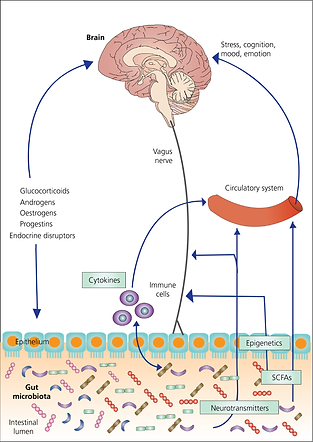FORGER/CASTILLO-RUIZ LABORATORY
Microbiota effects on neonatal brain development

All mammals are colonized at birth by a vast number of microbes, collectively known as the
microbiota. In our studies we are addressing whether this microbial colonization influences brain development. The largest population of microbiota is found in the gastrointestinal tract, and this is also the only microbiota with a well-established, bidirectional communication with the brain. We recently found that the absence of this colonization alters key developmental processes in the perinatal mouse brain. For example, cell death (which prunes neuronal cells) and presence of microglia (the immune cells of the brain) are altered in newborn mice devoid of microbes, in comparison to mice that are conventionally colonized at birth.

Ongoing projects
In ongoing studies in the lab we are investigating if we can rescue the effects of absence of a microbiota at birth via cross-fostering
manipulations. We are also studying the effects of
selectively altering microbiota on the developing mouse brain via the use of antibiotics during the perinatal period and by using mice harboring a minimal number of bacterial species. We are also determining the route of communication that gut bacteria uses to communicate with the newborn brain.
NEONATAL MICROBIOTA TEAM
The microbiota influences cell death and microglial colonization in the perinatal mouse brain
January 2018
Castillo-Ruiz, A, Mosley, MM, George, AG, et al. Brain Beh Immunology. doi: 10.1016/j.bbi.2017.08.027


